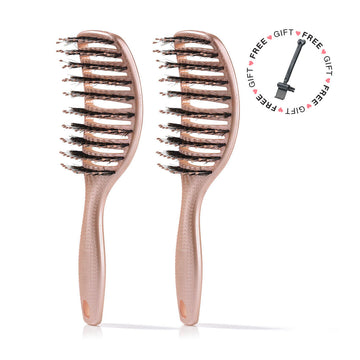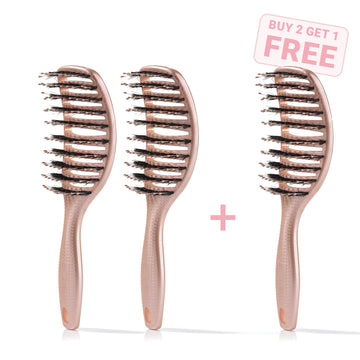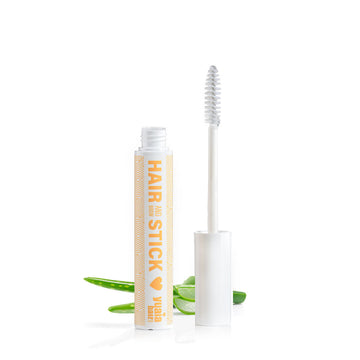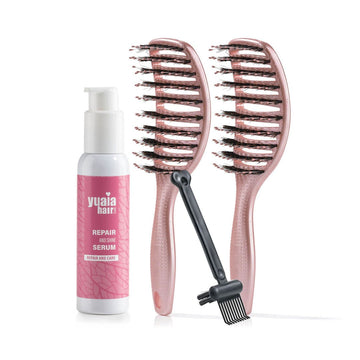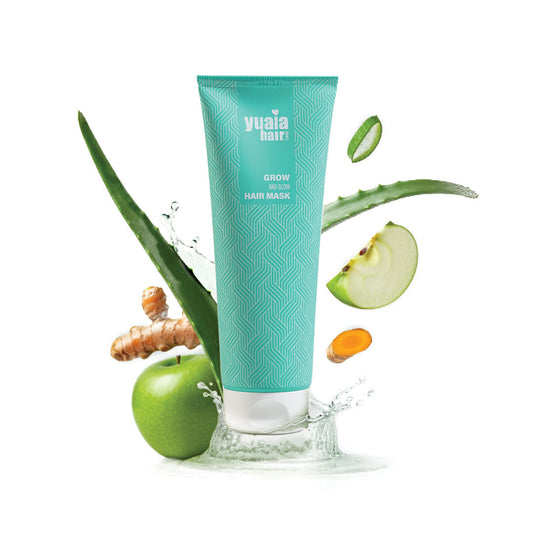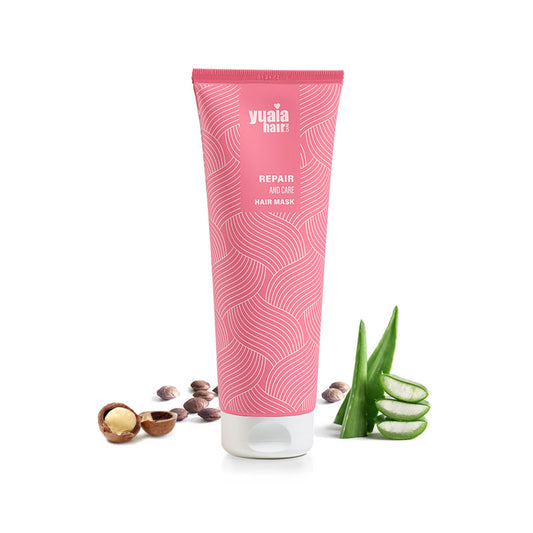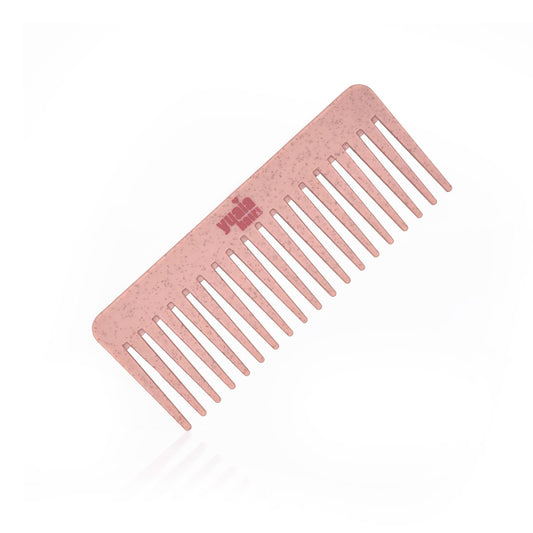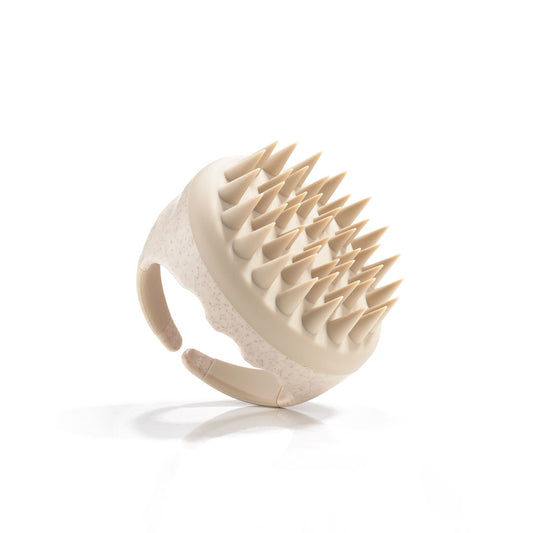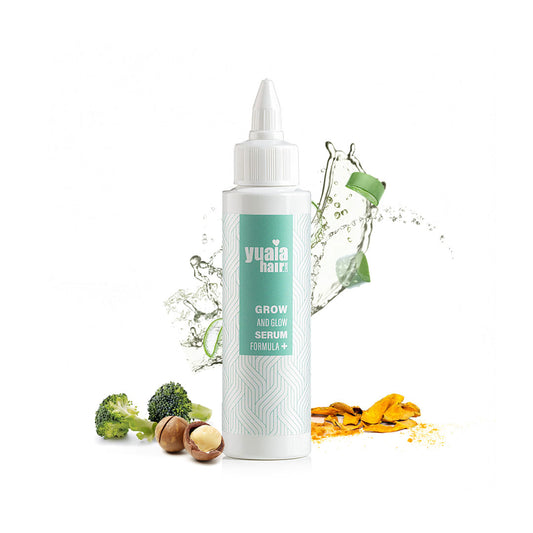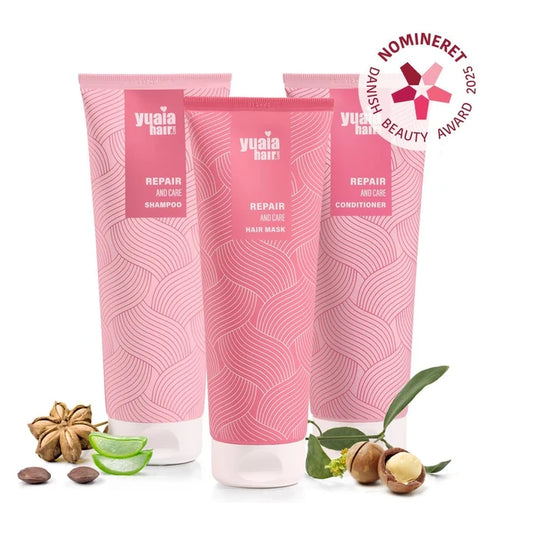
What are the benefits of using a hair mask?
Hair masks can provide numerous benefits for your hair, including adding moisture, shine, and strength. They are especially effective at addressing unique hair issues such as breakage, dryness, and frizz. By deeply penetrating the hair shaft, hair masks work to restore hydration, reduce damage, and improve overall hair health. They also help to smooth the hair cuticle, which minimizes frizz and adds a glossy shine to your hair.
Different ingredients in hair masks cater to various hair needs. For instance, mango butter is excellent for rebuilding hair and increasing hair elasticity, while silk proteins help strengthen the hair and prevent breakage. Argan oil and coconut oil are particularly effective for enhancing shine and making hair feel smoother. Additionally, avocado oil and honey are commonly used for their nourishing properties, helping to seal in moisture and protect hair from environmental damage. Masks with keratin can also help rebuild the hair structure, making it stronger and more resilient.
Whether your hair is dry, damaged, or simply in need of a boost, incorporating a hair mask into your routine can make a significant difference in its texture and appearance. Using a hair mask regularly can help prevent split ends, improve elasticity, and protect against future damage, ensuring your hair remains healthy and vibrant. The concentrated ingredients in hair masks provide long-lasting benefits, making them an essential part of any hair care regimen for those seeking stronger, shinier, and more manageable hair.
How to use a hair mask effectively - A step-by-step guide
Using a hair mask correctly can make a big difference in the results you achieve. Here is a step-by-step guide:
- Shampooing and Rinsing: Start by shampooing your hair to remove any dirt, oil, or product buildup. Rinse thoroughly to ensure your hair is clean before applying the mask. It's essential to remove any impurities so that the mask can penetrate deeply without any barriers.
- Applying on Damp or Towel-Dried Hair: Gently towel dry your hair so that it is damp but not dripping wet. This ensures that the mask can adhere properly without being diluted by excess water. Apply the hair mask evenly, focusing on the mid-lengths and ends of your hair, as these areas tend to be the most damaged and dry. Use your fingers or a wide-toothed comb to distribute the product evenly and ensure all strands are coated.
- Massaging the Mask In: For better absorption, gently massage the mask into your hair for a few minutes. This helps the ingredients penetrate deeper into the hair shaft and also stimulates blood circulation in your scalp, which can promote healthier hair growth.
- Leaving It On: Leave the hair mask on for the recommended time, which can range from a few minutes to overnight, depending on your hair type and the level of hydration needed. For very dry or damaged hair, leaving the mask on longer can provide deeper nourishment. You can also cover your hair with a shower cap to create a warm environment, which can help the mask work more effectively.
- Rinsing Thoroughly: After the recommended time, rinse out the hair mask thoroughly with lukewarm water. Make sure no residue is left, as leftover product can weigh your hair down and make it look greasy. For best results, follow up with a conditioner to seal in the moisture and ensure your hair feels smooth and manageable.
Do you put hair mask on the scalp?
Whether you should apply a hair mask to your scalp depends largely on the mask's ingredients and your hair type. Most hair masks are formulated to be used on the mid-lengths and ends of your hair, which are more prone to damage and dryness. Applying these masks to the scalp may lead to issues such as buildup, clogged hair follicles, and greasy roots, especially if the mask contains rich oils and butters.
However, there are scalp-specific masks that are formulated to provide nourishment directly to the scalp. These products often contain lighter ingredients that help promote a healthier scalp environment, addressing issues like dryness and irritation. For instance, certain hair masks are designed to improve scalp health and stimulate hair growth by providing moisture and essential nutrients directly to the roots.
If your hair type is dry or damaged, you may find that applying a hydrating mask from root to tip can be beneficial, while those with an oily scalp may prefer to keep the application to the mid-lengths and ends. Always follow the specific instructions for the hair mask you are using to ensure the best results.
Do you condition after a hair mask?
Adding a conditioner afterward can actually enhance the benefits of the hair mask by sealing in the moisture and adding an extra layer of softness and manageability. This step can help ensure that your hair stays hydrated, smooth, and easy to style. Using a conditioner after a hair mask helps lock in the nutrients provided by the mask, further improving your hair's texture and shine.
If you have particularly dry or damaged hair, conditioning after a hair mask can make your hair even more resilient, reduce frizz, and add extra protection against environmental damage. It also helps detangle your hair, making it easier to comb through and reducing the risk of breakage. The key is to use a light conditioner and apply it sparingly to prevent over-conditioning, which can weigh the hair down. For best results, focus the conditioner mainly on the ends of your hair, where extra moisture is most needed, and enjoy the added benefits of smooth, shiny, and healthy-looking hair.
Can you use a hair mask overnight?
Yes, you can use a hair mask overnight, but it depends on the type of mask and your hair's needs. Overnight hair masks are often used to provide deep hydration, control frizz, and repair damage. Moisturizing and hydrating masks, especially those containing natural oils like coconut oil or aloe vera, are suitable for overnight use. These ingredients help deeply condition the hair while you sleep, leaving it soft and shiny the next day.
However, not all masks are suitable for overnight application. Protein-rich or clay-based masks can cause damage if left on for too long, potentially leading to brittle hair and breakage. It's important to check the instructions for each specific mask to determine if it is safe to use overnight. To avoid making a mess, wrap your hair in a shower cap or silk scarf before bed. If your hair is very dry or damaged, using an overnight hair mask once or twice a week can be beneficial. However, for oily hair, it's better to limit usage to once every two weeks to avoid product buildup.
How often should you use a hair mask?
The frequency of using a hair mask depends largely on your hair type and its specific needs:
- Dry Hair: If your hair is very dry and lacks natural oils, using a hair mask 2-3 times per week is recommended. This will help provide the necessary hydration and restore moisture to make your hair feel softer and more manageable.
- Damaged Hair: For hair that has been damaged due to heat styling or chemical treatments, it is best to use a hair mask 1-2 times per week. This will help repair and rebuild the hair fibers, strengthening the strands and reducing breakage over time.
- Oily or Fine Hair: If your hair tends to be oily or fine, using a hair mask once a week or even once every two weeks is sufficient. This will help provide the nourishment needed without weighing the hair down or making it look greasy.
- Normal Hair: For those with relatively healthy hair that is neither too dry nor too oily, using a hair mask once a week is a great way to maintain its health, shine, and softness.
For all hair types, it's essential to follow the instructions provided with the hair mask product to avoid over-conditioning, which can lead to product buildup and heavy, lifeless hair. Incorporating a hair mask into your routine based on your hair type can help improve overall hair health, keeping your locks shiny, strong, and nourished
The magic of hair masks
Hair masks are a versatile and incredibly powerful addition to any hair care routine, offering deep nourishment, repair, hydration, and strength. It helps address multiple hair concerns and provides lasting results when used regularly. They provide deep hydration, add shine, and strengthen your hair, addressing issues like dryness, frizz, and damage. When used correctly, they can rejuvenate and transform your hair, leaving it healthier, softer, and more vibrant. Whether you're dealing with dry, damaged, or color-treated hair, there's a hair mask tailored to meet your specific needs, making it a go-to solution for restoring hair vitality.
Frequently Asked Questions
Can I use a hair mask on color-treated hair?
Yes, hair masks are safe and beneficial for color-treated hair. They help restore moisture, repair damage from coloring, and maintain vibrancy. Look for masks specifically formulated for color-treated hair to protect and prolong your color.
Should I use a hair mask before or after shampooing?
Hair masks are most effective when used after shampooing. Shampoo cleanses your hair and opens the cuticle, allowing the mask’s nourishing ingredients to penetrate deeply. Always rinse out the mask thoroughly and follow with conditioner if needed.
How long should I leave a hair mask on?
The recommended time varies by product, but most hair masks should be left on for 5–20 minutes. For deep hydration, some masks can be left on overnight. Always follow the instructions on your specific product for best results.
Can I make a hair mask at home?
Yes, you can make simple hair masks at home using natural ingredients like coconut oil, honey, avocado, or yogurt. These ingredients provide moisture and nourishment, but for targeted concerns, professional masks may offer more advanced benefits.
 2-5 day delivery
2-5 day delivery
 25.000+ satisfied customers
25.000+ satisfied customers
 Satisfaction Guarantee
Satisfaction Guarantee









